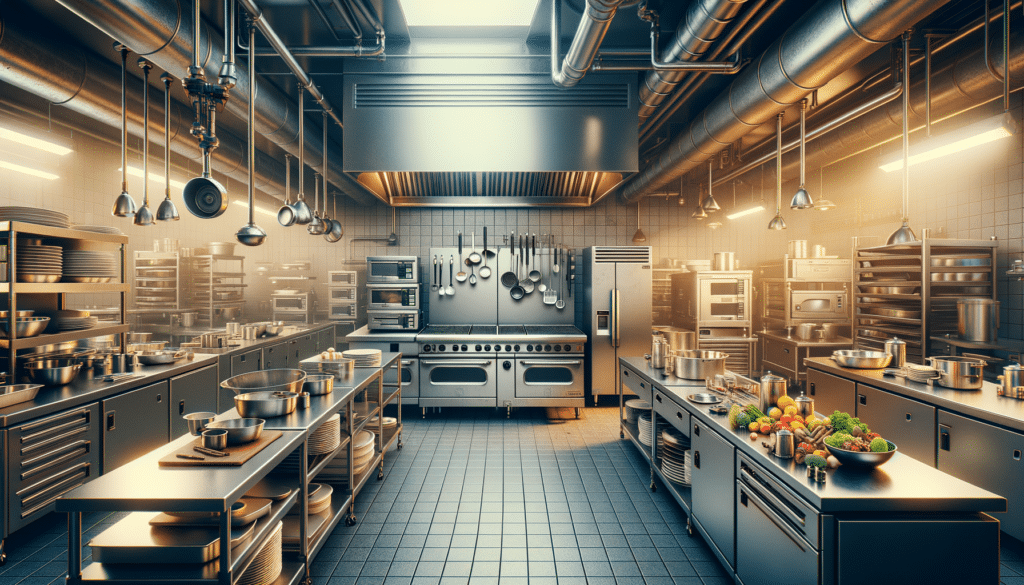Understanding the Benefits of Used Restaurant Equipment
When it comes to launching or upgrading a restaurant, the cost of equipment can be a significant concern. This is where used restaurant equipment offers a compelling advantage. By opting for pre-owned items, restaurant owners can save a substantial amount of money, which can be invested in other essential areas such as marketing, staff training, or interior design. The financial benefits are clear, but there are additional advantages worth considering.
One of the most notable benefits is the immediate availability of equipment. Unlike new items that might require a waiting period for manufacturing and shipping, used equipment is typically ready for immediate delivery. This is particularly beneficial for restaurants looking to open quickly or replace broken equipment without delay.
Furthermore, buying used equipment is an environmentally friendly choice. By giving a second life to equipment, businesses contribute to reducing waste and promoting sustainability. This can also enhance a restaurant’s reputation among environmentally conscious customers.
Lastly, used equipment often includes models that have been tested in real-world conditions, ensuring reliability and durability. Many sellers refurbish and test equipment before selling, providing a level of assurance that the equipment is in good working order.
- Cost savings for better allocation of resources
- Immediate availability to avoid delays
- Environmentally friendly choice
- Tested and reliable equipment
Factors to Consider When Buying Used Equipment
Purchasing used restaurant equipment requires careful consideration to ensure you get the most value for your investment. One of the first factors to consider is the condition of the equipment. It is essential to inspect the items thoroughly for any signs of wear and tear, such as rust, dents, or malfunctioning parts. If possible, test the equipment to ensure it operates correctly.
Another important factor is the age of the equipment. Older models may not have the energy efficiency or features of newer ones, which could impact your operational costs in the long run. However, older models can also be more durable, having been built to last.
Consider the brand and model of the equipment as well. Some brands are renowned for their durability and ease of maintenance, making them a safer choice even when purchased used. Researching reviews and ratings can provide insights into the reliability of specific models.
Finally, check the availability of parts and service for the equipment. It is crucial to ensure that replacement parts are readily available and that there are service providers who can repair the equipment if needed.
- Inspect for wear and tear
- Consider age and energy efficiency
- Research brand reliability
- Ensure availability of parts and service
Where to Buy Used Restaurant Equipment
Finding a reliable source for used restaurant equipment is crucial to ensure you receive quality items. There are several avenues to explore when searching for pre-owned equipment. One of the most popular options is to visit local restaurant supply stores that specialize in used equipment. These stores often have a wide selection and knowledgeable staff who can offer advice and assistance.
Online marketplaces are another excellent resource. Many websites cater specifically to the sale of used restaurant equipment, providing detailed descriptions and photos to help buyers make informed decisions. However, it’s essential to verify the seller’s reputation and read reviews from previous buyers to avoid potential scams.
Auction houses and liquidation sales also present opportunities to acquire used equipment at competitive prices. These events often occur when restaurants close or upgrade their equipment, offering high-quality items at a fraction of the cost. Attending these sales can be an exciting way to find unique equipment while engaging with other industry professionals.
Lastly, networking within the restaurant community can lead to valuable connections and recommendations. Fellow restaurateurs may have equipment for sale or know of reputable sellers, providing a trusted source for your purchase.
- Local restaurant supply stores
- Online marketplaces
- Auction houses and liquidation sales
- Networking within the restaurant community


